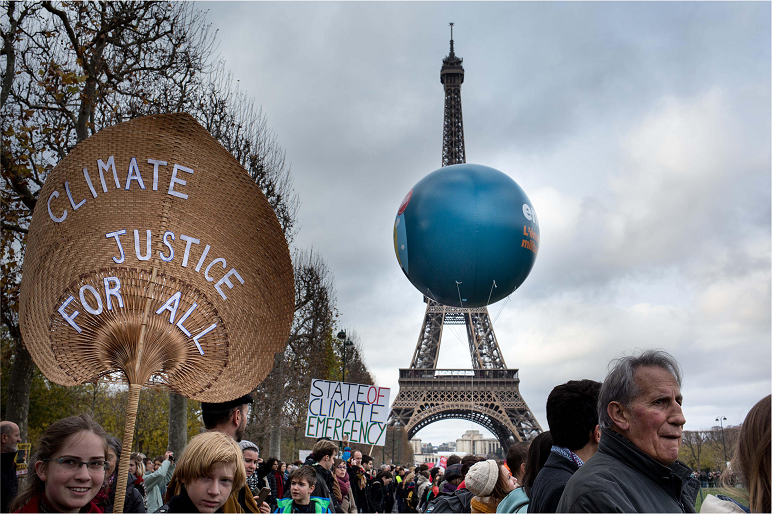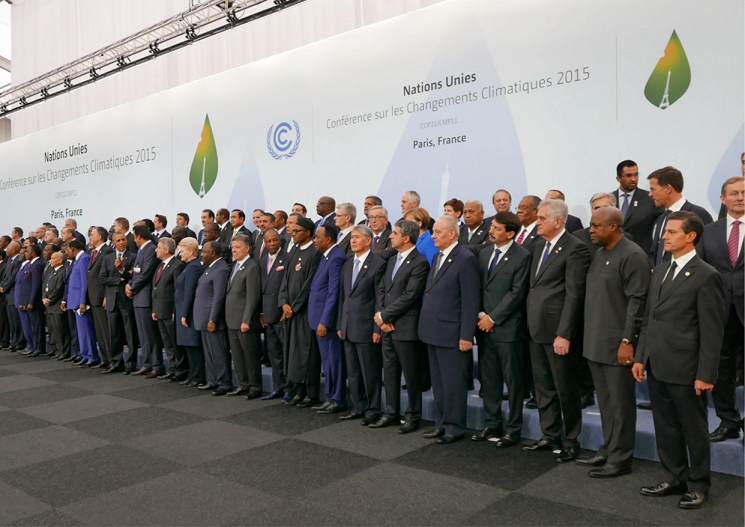GLOBAL WARMING is a central concept in discussing climate change. It is the increase in surface temperatures on earth and its primary cause is an increase in the emission of greenhouse gases. The effects of climate change are coming to light around us daily.
An increase in atmospheric temperature of as little as 1°C or less can cause increased melting of glaciers and the polar ice caps. This in turn causes an increase in the sea level and distorts nature’s balance.
One area is ravaged by more precipitation (rainfall and hail) than they have had in decades, while another area experiences drought and such increased temperatures that fires start spontaneously. This and more global impact of climate change has made world leaders come together to find a solution.
In 2015, representatives from almost every nation in the world gathered at the Conference of Parties (COP) to deliberate on the increasingly dangerous threat of climate change. The outcome of that conference was the Paris Agreement―a binding agreement to begin to take action to mitigate and eventually reverse the disastrous effects of climate change. This agreement marked a landmark global achievement, nothing else had ever united the nations of the world so completely in the fight against climate change.
The Paris Agreement is a legal contract signed by more than 190 countries. The fundamental objective of the Paris Agreement is to enhance the global response to the threat of climate change by keeping this century’s global temperature increase far below 2°C and pursuing efforts to keep it still below 1.5°C. The agreement also seeks to strengthen nations’ capacity to deal with the consequences of climate change and to ensure that funding flows reflect reduced greenhouse gas emissions and a climate-resilient path.
“This agreement marked a landmark global achievement, nothing else had ever united the nations of the world so completely in the fight against climate change”
The Paris Agreement was adopted in December 2015, during the United Nations Climate Change Conference (UNCCC) which was held in Paris, France. The Paris Agreement was proposed as an improvement on the previously existing Kyoto Protocol―an international treaty to curb greenhouse gas emission. The major setback of the Kyoto protocol was that two major producers of greenhouse gases―the United States and China―were not part of it. This Agreement took effect on November 4, 2016, and has been signed by 191 countries as of January 2021.
CLOSE TO SIX YEARS after the Paris Agreement was first signed, the effectiveness of the agreement as implemented is still a topic of debate. Some of the challenges the Paris Agreement faced include:
- Lack of sanctions and incentives to ensure compliance.
- Because the Paris Agreement aims for a global goal, the contributions of one nation may be undermined by a lack of participation from other nations.
- Lack of innovative research into substitutes to fossil fuels because of the interdependence of the global economy on fossil fuel production. Although there have been some major forays into sourcing for alternative energy sources, these have not been done in sufficient amounts to completely phase out fossil fuels as an energy source.

However, for effective implementation, it requires every government to prioritize it. The Paris Agreement requires all Parties to put forward their best efforts through “nationally determined contributions” (NDCs) and to strengthen these efforts in the years ahead. Also, all governments must work together, ensuring that their nation is doing its best to meet up with their responsibility as regards climate action. Through policy implementation and a shift to cleaner energy sources, we can avert this impending disaster.
The Paris Agreement is a step in the right direction in the fight against the global threat of climate change. Is it having a significant effect on global warming? It might be too soon to tell.
